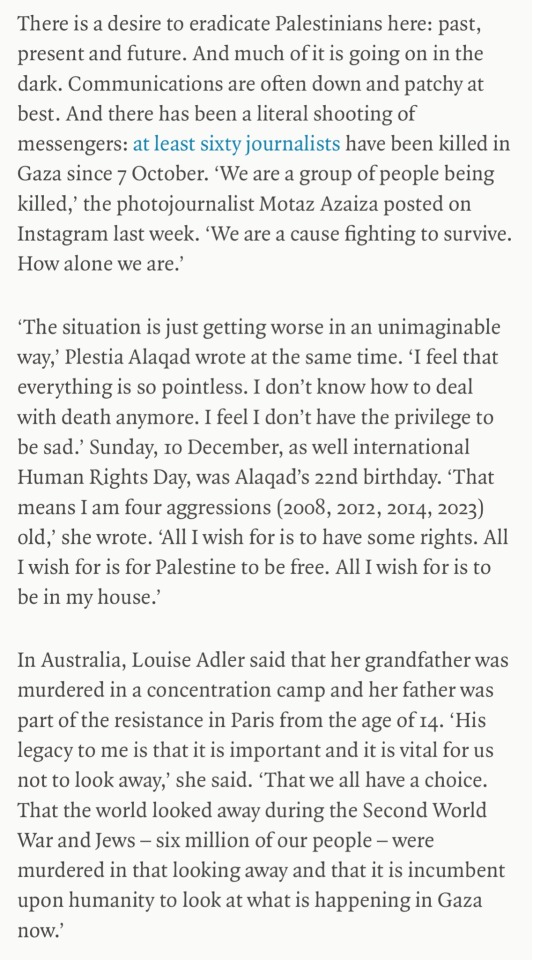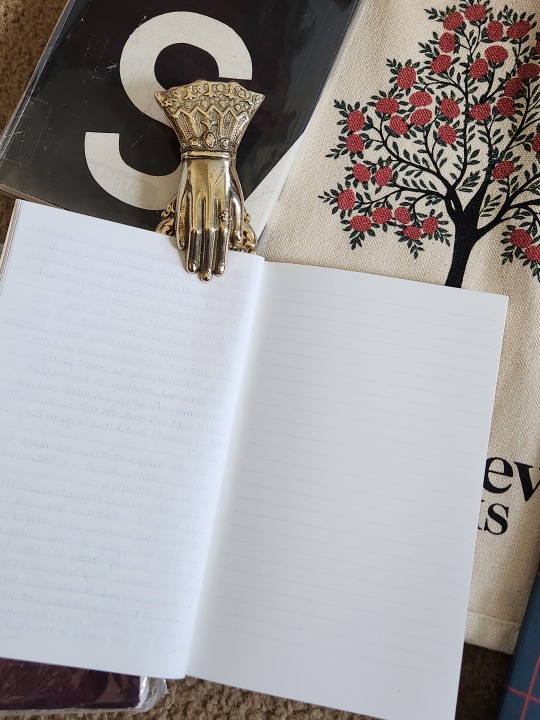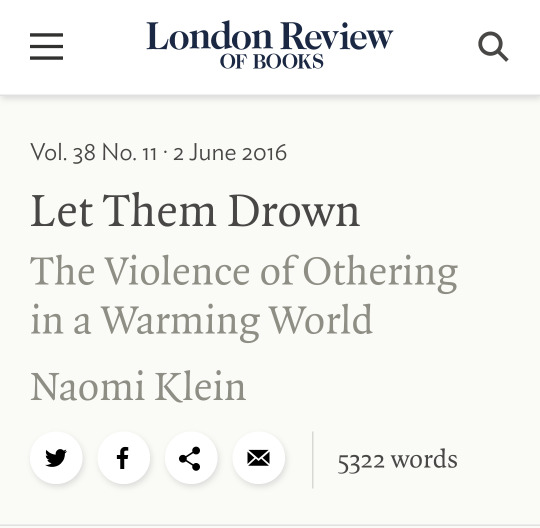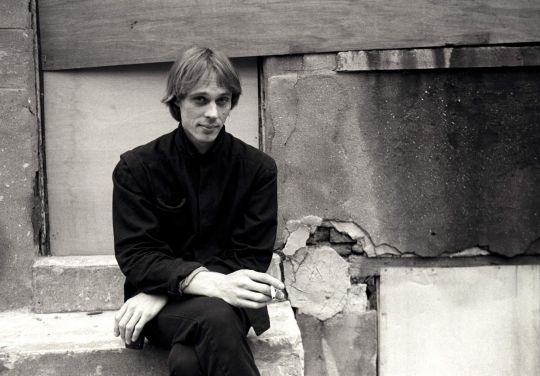#london review of books
Explore tagged Tumblr posts
Text

Don’t Look Away, by Selma Dabbagh as featured in the London Review of Books
#selma dabbagh#london review of books#don’t look away#words#essays#typography#palestine#free palestine
1K notes
·
View notes
Text
#schneewittchen#stanley schtinter#review#london review of books#stephen dillane#toby jones#julie christie#hanns zischler#stacy martin
18 notes
·
View notes
Text


london stationery haul for my stationery freaks !!! i went a little crazy with stationery on this trip but to my defense, it was all funded by my state tax return hehe... these are the various things i got, which i linked:
yellow hard shell charger case from London Graphic Centre
special edition totebag from London Review of Books
gallimard journal from Choosing Keeping
brass hand clip from Choosing Keeping (honestly my fave purchase on this trip !!)
vintage bus blind journal from Choosing Keeping
kaweco perkeo fountain pen and inks from Present & Correct
grid flatlay book from Present & Correct
the epicurean notebook from Magma London
i also visited Smythson of Bond Street and Mount Street Printers but they were out of my budget. beautiful places to get luxury stationery goods!
#i dont even want to calculate how much i spent don't do it for me#im an adult in my late 20s!!!#i also got another lrb tote bag for my mom for mother's day#except american mother's day is in 2 months and i didn't realize bc i was just following what the brits were doing#she told me to get her another gift then lolol#mine#studyblr#studyspo#study inspiration#tea-tuesday#study motivation#journals#pens#stationery#stationery freaks#london#london review of books#london graphic center#present & correct#choosing keeping
96 notes
·
View notes
Text

There are other reasons why environmentalism might have looked like a bourgeois playground to Said. The Israeli state has long coated its nation-building project in a green veneer – it was a key part of the Zionist ‘back to the land’ pioneer ethos. And in this context trees, specifically, have been among the most potent weapons of land grabbing and occupation. It’s not only the countless olive and pistachio trees that have been uprooted to make way for settlements and Israeli-only roads. It’s also the sprawling pine and eucalyptus forests that have been planted over those orchards, as well as over Palestinian villages, most notoriously by the Jewish National Fund, which, under its slogan ‘Turning the Desert Green’, boasts of having planted 250 million trees in Israel since 1901, many of them non-native to the region. In publicity materials, the JNF bills itself as just another green NGO, concerned with forest and water management, parks and recreation. It also happens to be the largest private landowner in the state of Israel, and despite a number of complicated legal challenges, it still refuses to lease or sell land to non-Jews.
...
The JNF is an extreme and recent example of what some call ‘green colonialism’. But the phenomenon is hardly new, nor is it unique to Israel. There is a long and painful history in the Americas of beautiful pieces of wilderness being turned into conservation parks – and then that designation being used to prevent Indigenous people from accessing their ancestral territories to hunt and fish, or simply to live. It has happened again and again. A contemporary version of this phenomenon is the carbon offset. Indigenous people from Brazil to Uganda are finding that some of the most aggressive land grabbing is being done by conservation organisations. A forest is suddenly rebranded a carbon offset and is put off-limits to its traditional inhabitants. As a result, the carbon offset market has created a whole new class of ‘green’ human rights abuses, with farmers and Indigenous people being physically attacked by park rangers or private security when they try to access these lands. Said’s comment about tree-huggers should be seen in this context.
...
But this only scratches the surface of what we can learn from reading Said in a warming world. He was, of course, a giant in the study of ‘othering’ – what is described in Orientalism as ‘disregarding, essentialising, denuding the humanity of another culture, people or geographical region’. And once the other has been firmly established, the ground is softened for any transgression: violent expulsion, land theft, occupation, invasion. Because the whole point of othering is that the other doesn’t have the same rights, the same humanity, as those making the distinction. What does this have to do with climate change? Perhaps everything.
We have dangerously warmed our world already, and our governments still refuse to take the actions necessary to halt the trend. There was a time when many had the right to claim ignorance. But for the past three decades, since the Intergovernmental Panel on Climate Change was created and climate negotiations began, this refusal to lower emissions has been accompanied with full awareness of the dangers. And this kind of recklessness would have been functionally impossible without institutional racism, even if only latent. It would have been impossible without Orientalism, without all the potent tools on offer that allow the powerful to discount the lives of the less powerful. These tools – of ranking the relative value of humans – are what allow the writing off of entire nations and ancient cultures. And they are what allowed for the digging up of all that carbon to begin with.
2 June 2016
#naomi klein#edward said#climate change#palestine#israel#london review of books#environmentalism#conservation#jewish national fund#jnf
82 notes
·
View notes
Text
"Mass starvation isn't simply individual starvation aggregated, but the collapse of human health in a collapsing society: first displacement and the disruption of water, sanitation and shelter, attended by a drop in consumption of essential foods; then child malnutrition; and in the absence of remedial health and nutrition efforts, the prospect of mass deaths."
Source: A. de Waal (2025), ‘How to Measure Famine’, London Review of Books, 6 Feb, p14.
5 notes
·
View notes
Text
The Shoah after Gaza (a long read by Pankaj Mishra, in the London Review of Books)
4 notes
·
View notes
Quote
A meme bounced around Brooklyn last summer: ‘What if we kissed at the Tom Verlaine book sale?’ Verlaine, who formed and fronted the band Television, died on 28 January 2023. Over the years he had acquired fifty thousand books – twenty tons or more – on any number of subjects: art, acoustics, astrological signs, UFOs. The sale of those books – a two-day affair in August, run out of adjacent garages in Brooklyn – was a serious draw. Arto Lindsay, the avant-pop musician, walked by. Tony Oursler made a short video and posted it on Instagram. Old friends, some of whom looked as if they hadn’t seen daylight in decades, found each other in the long line. Verlaine had split his enormous collection between storage units: one a short walk from his Chelsea one-bedroom, four more across the river in Red Hook, near the foot of the Gowanus Canal. Verlaine didn’t use Uber. To get to the Brooklyn facility he’d take a rickety grocery cart on the F train, ride it out to Smith and Ninth Street, the highest Subway station in the city, and walk the rest of the way. In a crowd, Verlaine stood out. He was tall, thin, fine-featured. (‘Tom Verlaine has the most beautiful neck in rock and roll,’ Patti Smith wrote in 1974. ‘Real swan like.’) He had never quit smoking and wore a car coat, like a character out of film noir. But there he had been, bumping his cart down several sets of stairs and escalators and wheeling it, under the Brooklyn-Queens Expressway, across seven lanes of traffic, to Red Hook. The books had to go somewhere.
Alex Abramovich | At the Tom Verlaine Book Sale
You can still buy Verlaine’s books from Better Read than Dead and Capitol Hill’s websites. His record collection will go on sale, one of these days, at the Academy Record annexes in Greenpoint and the East Village. They’re a reminder of different days in a different city, where the bookstores and record stores stayed open late, and you could poke around in them even after a night out at CBGB, and the stuff that you’d get there was cheap, and the space that you needed to store them was cheap, and, even if you worked in a bookstore, you could afford an offset press and start your own poetry imprint, or find a loft space in SoHo and start your own band.

#london review of books#tom verlaine#books#books for sale#better read than dead#brooklyn#capitol hill books#dc
4 notes
·
View notes
Text
youtube
#shoah#genocide in palestine#palestine#middle east#lebanon#united nations#israel#human rights#jerusalem#london review of books#Youtube
2 notes
·
View notes
Text
Judith Butler · This Is Wrong: Executive Order 14168
This is wrong.
#order 14168#trump#trump administration#anti transphobes#lgbtq#transgender#judith butler#london review of books#dei#diversity equity and inclusion#donald trump#scapegoat
0 notes
Text

For your listening pleasure!
18 notes
·
View notes
Text

the london review bookshop came through for me, because god knows i need some craft advice, and i desperately need my own Mutinous Crew
0 notes
Text
0 notes
Text
"The crime against humanity of extermination is defined in the...[Rome Statute of the International Criminal Court], and prohibits the 'intentional infliction of conditions of life, inter alia, the deprivation of access to food and medicine, calculated to bring about the destruction of part of a population"
Source: A. de Waal (2025), ‘How to Measure Famine’, London Review of Books, 6 Feb, p16.
0 notes
Text
So, your life. There it is before you – possibly a road, a ribbon, a dotted line, a map – let’s say you’re 25, then you make some decisions, do things, have setbacks, have triumphs, become someone, a bus driver, a professor of Indo-European linguistics, a pirate, a cosmetologist, years pass, maybe in a family maybe not, maybe happy maybe not, then one day you wake up and you’re seventy. Looking ahead you see a black doorway. You begin to notice the black doorway is always there, at the edge, whether you look at it or not. Most moments contain it, most moments have a sort of sediment of black doorway at the bottom of the glass. You wonder if other people are seeing it too. You ask them. They say no. You ask why. No one can tell you.
A minute ago you were 25. Then you went ahead getting the life you want. One day you looked back from 25 to now and there it is, the doorway, black, waiting.
When I was diagnosed with Parkinson’s disease a symptom particularly mortifying to me was that my handwriting disintegrated. I used to take pleasure in writing in notebooks, shelves of them, day after day, year after year. Now the upright strokes bend or break or go in all directions, vowels shrink to blobs, slant loses its smooth smart angle, it all looks embarrassing. I scrub out whole paragraphs in shame.
0 notes
Link
There is an underlying assumption that each of us aspires to be as productive as possible, and that stripping away everything seen to interfere with productivity is a good thing. This was the pitch made by many new companies in the 1990s, when online shopping and other digital financial transactions first became a big deal. The shift has reshaped cityscapes as well as psyches. The American Booksellers Association reported that in 2021 alone, ‘the movement of dollars to Amazon and away from retailers displaced 136,000 shops occupying 1.1 billion square feet of traditional commercial space.’ That’s a lot of local jobs and relationships both to places and people.
The small independent businesses that we’re losing sold goods, but they also gave away for free all sorts of things that are less tangible. There might be cheaper ways to buy shampoo or a better selection of envelopes online, but at an in-person store you can have a social interaction, even build a relationship with the proprietor and chat with other customers, or run into a friend or neighbour. That may happen in big chains such as Starbucks – but the employees aren’t likely to be around for long, the profit doesn’t go back into the community and the design of the place is generic, not reflecting its environment.
The San Francisco of my youth was full of small shops whose friendly eccentricity felt like part of the place. Some of them still exist but they’re rarer now. Many had old photographs of the business or the neighbourhood, some had artefacts of the past or pieces of the owner’s art. The little liquor and grocery store in my old neighbourhood had a wall of pictures of locals attending its annual barbecue and a ledger in which the proprietor recorded transactions with elderly locals who bought their groceries on credit and paid up at the end of the month. The exchanges between people who knew one another were non-commodities these small businesses offered along with whatever was for sale.
In her urbanist manifesto The Death and Life of Great American Cities (1961), Jane Jacobs wrote about ‘eyes on the street’: about the way that pedestrian traffic, people moving around – or sitting around – in public, kept a place safe and more than safe: convivial, gregarious. I think of what has come to my city as ‘the great withdrawal’. People on the street often seem to have their eyes elsewhere, usually on their phones: they might video a crime, but they might also not notice it’s happening. Many seem to flinch at direct contact with strangers or pretend the apparent intrusion didn’t happen, so I’ve come to avoid the tiny interactions that seem much more welcome in New Orleans, even in New York City.
After a childhood nearby, I moved to San Francisco in 1980 when street life and bar life were vibrant, but cafés were rare outside North Beach’s Italian neighbourhood. They proliferated in the 1980s and 1990s as places to hang out, maybe read, maybe chat to whomever was around or just people-watch. In this millennium, in cafés frequented by young white people, every customer seems to be silently staring at an Apple product, so that the places look and feel like offices. Even this phase may be on the way out. The next phase – of trying to keep customers from sticking around – has arrived. A food industry magazine published a story in April last year with the headline ‘In 2023, San Francisco Coffee Shops Want You to Get the Hell Out. The Vibe Is to Leave. Like Right Now,’ explaining that cafés were removing tables and chairs and focusing exclusively on take-away products, in part because cafés were being used as free office space. Cultural, social and religious institutions have been displaced or run aground, film festivals and art centres have left the city, historic businesses, including the oldest Black-owned bookstore in the US, have been evicted, all while wealth continues to concentrate at the fastest rate ever seen.
____________________
I know this is a crazy-long excerpt to expect people to read, but the article is maybe 5x as long and it’s just a brilliant essay on how San Francisco -- and US cities in general -- are basically under attack by people who want to buy up all the property and tell everyone else how to live while at the same time they do everything in their power to avoid having any interaction with any humans who live in those same cities.
Highly recommend reading the whole thing.
3 notes
·
View notes
